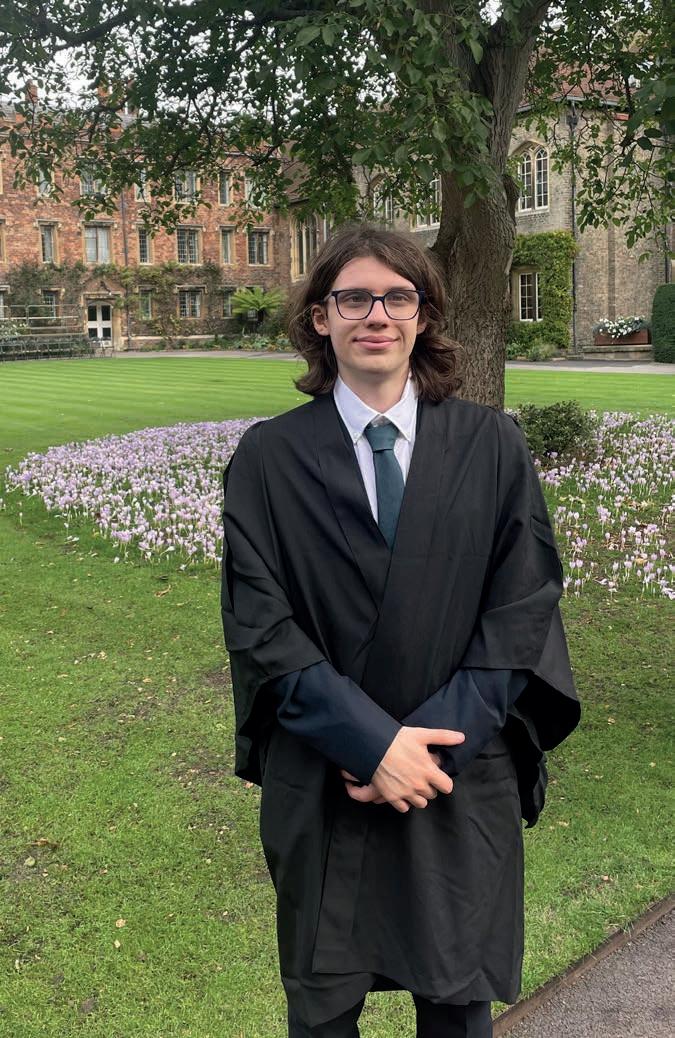
2 minute read
The Mathematics
as told to Professor Claude Warnick (Fellow of Queens’ & Director of Studies)
When did you find your particular area of interest, the distribution of prime numbers and the gap between them?
Advertisement
I always had an interest in Mathematics and a clear passion for Number Theory; my career just developed rather than following some pre-destined path. I knew that being a Mathematician was the job I wanted, even though one doesn’t know the reality of the life and career [that goes with it].
The interest comes from the fact that there are lots of things with prime numbers that you can explain to a school-age child but there are also problems that have not been solved for hundreds of years. And, there are lots of bits of theories drawn into the subject of prime numbers.
Your work is a significant step towards the Twin Prime Conjecture, which asserts that there are infinitely many twin primes, i.e. pairs of primes that differ by two. How far away are we from a proof of this? Is there one fundamental obstacle or are there many? It needs some big breakthroughs and will not be solved any time soon –but perhaps one more big idea will create the momentum required.
The Fields Medal citation mentioned your creativity and ingenuity; so what does it mean to you to be creative as a mathematician? Sometimes the ideas come subconsciously leading to moments of great frustration; but then on a walk home or in the shower, the solution comes. It’s mysterious and remarkable to me. But, one needs to be in the right frame of mind and have the space to come up with the ideas.
The way of thinking is this: 1) distil the ideas into simpler ‘model’ problems and 2) then build up an intuition about it. Finding the right thing in the first place is the problem.
How motivated are you by the usefulness of the mathematical research you are doing i.e. its real-world application?
I have to do research that I think is worthwhile. I view the research as fundamental to the universe and the natural world we live in – I wouldn’t enjoy it otherwise. But this is not the motivation. I must feel that what I’m doing is important.
What is the connection between the mathematics you were doing at Queens’ and what you are doing now?
I was what you might call an independently-minded student and was not always the most dutiful! But that essential freedom at Queens’ set me up really well for my later career. That’s the main thing I took away.
What advice would you have for current undergraduate mathematicians at Queens’?
They need to follow their interest and work on what they find fun. Much of being a mathematical researcher is making zero progress, so it could be very depressing! But if you can enjoy it, then it is perfect.
To watch James’s award video from the IMU ceremony, scan the QR code or visit http://bit.ly/3KowRfW











